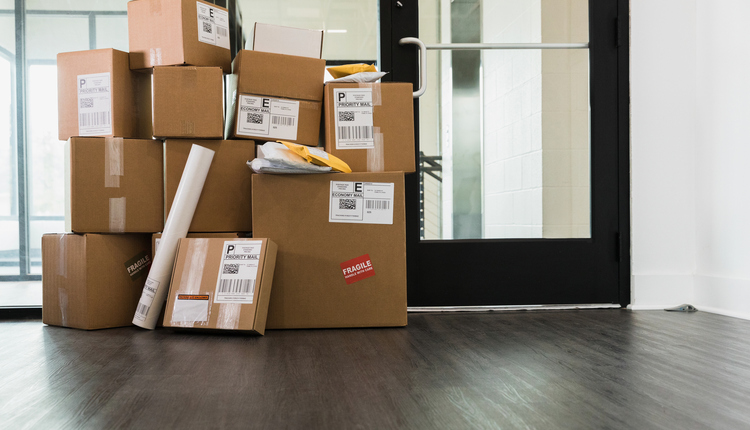When logistics professionals think about shipping perishables, the pitfalls of the business usually involve three anxiety-provoking images: hot days, malfunctioning refrigeration units and truckloads of rotten vegetables. While any combination of these is enough to keep a distribution manager up at night, they are only a fraction of the concern when dealing with the specialized world of extreme perishables.
Extreme perishables can be defined as any item subject to rapid decay, whose timely delivery can mean savings of hundreds of thousands of dollars and often means the difference between life and death. Examples include organs and bone marrow for transplant, umbilical cord blood and even critical technology parts or major auction catalogs. Much like their extreme sports brethren, extreme perishables leave zero margin for error. Therefore, shippers moving these materials must use every trick in the playbook to get the job done right. The following are some general rules of thumb.
Education Is Key
The first and last rule of extreme perishable shipping is that everyone involved in the process � from the customer support specialist who takes the call to the last-mile hand carrier � must be educated and trained in handling the goods being shipped. Particularly when dealing with emergency medical materials, even if they are not classified as dangerous goods, the dry ice often used to keep them cool is considered a dangerous good and can pose major logistical hurdles for travel. Time spent educating employees on the latest rules and regulations for handling extremely urgent or dangerous goods is the only way to make a shipping program cost effective. If you�ve ever stood at the cargo acceptance counter of a commercial airline and watched a shipment get rejected, you know that doing it right the first time is the only way to meet your deadlines.
It is imperative � particularly in today�s environment of heightened security � that all packaging be intact and appropriately labeled and documented. Rips, dents, tears or inaccurate paperwork bring an abrupt halt to the process. And in cases where particularly volatile materials are being shipped, a simple packaging mistake could have potentially perilous ramifications. Fortunately, there are reputable companies out there who assume the educational challenge, making sure that everyone is properly trained to do it right the first time.
Never Relent
In some cases, external circumstances can turn ordinary perish-ables into extreme perishables. This was the case on September 11 when the National Marrow Donor Program asked for help in facilitating eight separate shipments of stem cells to recipients in Japan, London, Germany and Boston. Following standard medical procedure for marrow transplant, the recipients� marrow cells are destroyed to make way for the donor cells, rendering their immune systems virtually non-existent. Without the critical stem cells they had been promised, these patients� lives would have been in danger.
While this type of shipment is typically handled as an urgent delivery, the circumstances on this particular day posed an entirely new set of challenges. But with all commercial air traffic grounded by the FAA, there were few alternatives. We were able to secure special Lifeguard status with the FAA, getting planes in the air despite the grounding. All eight shipments were delivered.
Every extreme perishable shipment involves multiple links between point of origin and destination. Sometimes these links can be planned out logically, such as those involving truck to plane to truck to doorstep. Other times, as in the above case, more unpredictable links come into play such as customs, special FAA clearances, extreme weather or the need to secure hand-carry specialists to escort a package to its destination. It is critical for everyone involved in managing the extreme perishables shipment process to realize that each of these links � those that are predictable and those that are not � is critical. Each step along the way presents an opportunity for problems. Fortunately, there are also solutions for those with the determination and focus to find them.
Be Creative
What do rock stars and captains of industry do when they want to get somewhere in a hurry? They take a Lear jet, of course. Some-times shippers need to think like rock stars. This past January, we received a call to move a donated pancreas from Central Maine University Medical Center to the University of Minnesota Hospital. Unlike many other organs for transplant, a human pancreas remains viable for transplant only for a very short time, ruling out the option of using commercial aircraft. Leveraging some impressive phone work and some creative thinking, operations personnel were able to secure a Lear jet on the runway in Nova Scotia, divert the plane to Maine, arrange new customs clearance for what had now become an international flight and then direct the aircraft to Minnesota. There it was met on the runway by an ambulance less than four hours later.
The key to success in this field is to never overlook any possibility, always keeping a contingency plan if the first idea doesn�t click. In the last 20 years, we�ve used everything from private car services to customized computer software programs to find the fastest, most reliable means of locomotion.
You�re Only as Good as Your People
Of course, all of the education, stick-to-itiveness and creativity in the world isn�t worth much without top people capable of implementing these strategies. The world of shipping and distributing extreme perishables is not for amateurs. It requires people with expertise in the latest worldwide transportation requirements, extraordinary negotiation skills and a die-hard devotion to their work. When, for example, the call comes in to distribute 210,000 auction house catalogs simultaneously, just two days after they are printed, you need software pros who can organize thousands of routes and pathways to their destinations. When leeches are needed for an operation to re-attach a young boy�s severed hand, you need negotiators that rival Wall Street�s best merger makers to get them retrieved from a locked storage facility in Kentucky.
Nowhere have we realized the importance of dedicated professionals more than last winter when one of our drivers and an operations manager tackled a blizzard with a combination of sharp thinking and outright grit to help save two strangers� lives. The mission started out simple enough. With the northeast corridor closed to all air travel due to a blinding snowstorm, our driver was dispatched to drive up from Alexandria, Virginia, to New Jersey with a donated liver for transplant to a four-year-old girl.
As the driver blazed a trail through the storm, our operations manager continually attempted to arrange a police escort but failed each time as the police cars got stuck in the snow. Nevertheless, the driver made it to his destination in just five hours.
The Road Ahead
Whether you are building a business in extreme perishables or hiring a carrier to handle these types of shipments, the most important considerations are the people you hire. Do they have experience in the business? Can they ensure the integrity of cumbersome or volatile materials? Do they have the technology capabilities to create customized solutions? Are they willing to think outside the box? The only constant in dealing with extreme perishables is that there are no constants. The magic touch is in the ability to maintain fluid motion and be ready to leap over or slide around the next obstacle.
Dominique C. Brown is chief operating officer of Quick International Courier. She can be reached by e-mail at dominique_brown@qintl.com. For more information, please call 800-488-4400 ext. 2224 or visit www.quickintl.com.





